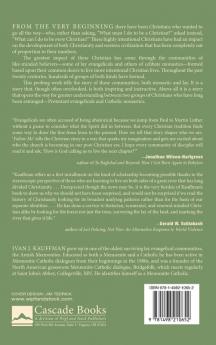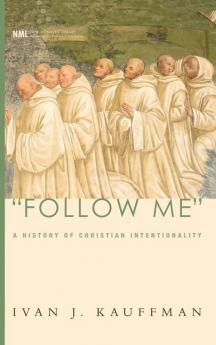English
Hardback
₹3872
₹4328
10.54% OFF
(All inclusive*)
Delivery Options
Please enter pincode to check delivery time.
*COD & Shipping Charges may apply on certain items.
Review final details at checkout.
Looking to place a bulk order? SUBMIT DETAILS
About The Book
Description
Author
From the very beginning there have been Christians who wanted to go all the way--who rather than asking What must I do to be a Christian? asked instead What can I do to be more Christian? These highly intentional Christians have had an impact on the development of both Christianity and western civilization that has been completely out of proportion to their numbers. The greatest impact of these Christian has come through the communities of like-minded believers--some of lay evangelicals and others of celibate monastics--formed based upon their common desire to live more intentional Christian lives. Throughout the past twenty centuries hundreds of groups of both kinds have formed. This probing work tells the story of these communities both monastic and lay. It is a story that though often overlooked is both inspiring and instructive. Above all it is a story that opens the way for greater understanding between two groups of Christians who have long been estranged--Protestant evangelicals and Catholic monastics. Evangelicals are often accused of being ahistorical because we jump from Paul to Martin Luther without a pause to consider what the Spirit did in between. But every Christian tradition finds some way to draw the line from Jesus to the present. How we tell that story shapes who we are. Follow Me tells the Christian story in a way that sparks my imagination and gets me excited about who the church is becoming in our post-Christian era. I hope every community of disciples will read it and ask How is God calling us to live the next chapter? --Jonathan Wilson-Hartgrove author of To Baghdad and Beyond: How I Got Born Again in Babylon Kauffman offers us a first installment on the kind of scholarship becoming possible thanks to the stereoscopic perspective of those who are learning to live on both sides of a great river that has long divided Christianity. . . . Unexpected though the news may be it is the very burden of Kauffmans book to show us why we should not have been surprised and would not be surprised if we read the history of Christianity looking for its broadest unifying patterns rather than for the basis of our separate identities. . . . He has done a service to historian ecumenist and renewal-minded Christian alike by looking for the forest not just the trees surveying the lay of the land and marking the river that gives it life. --Gerald W. Schlabach author of Just Policing Not War: An Alternative Response to World Violence Ivan J. Kauffman grew up in one of the oldest surviving lay evangelical communities the Amish Mennonites. Educated as both a Mennonite and a Catholic he has been active in Mennonite Catholic dialogues from their beginnings in the 1980s and was a founder of the North American grassroots Mennonite Catholic dialogue Bridgefolk which meets regularly at Saint Johns Abbey Collegeville Minnesota. He identifies himself as a Mennonite Catholic.
Delivery Options
Please enter pincode to check delivery time.
*COD & Shipping Charges may apply on certain items.
Review final details at checkout.
Details
ISBN 13
9781498210652
Publication Date
-01-01-2009
Pages
-274
Weight
-463 grams
Dimensions
-152x229x19.05 mm











